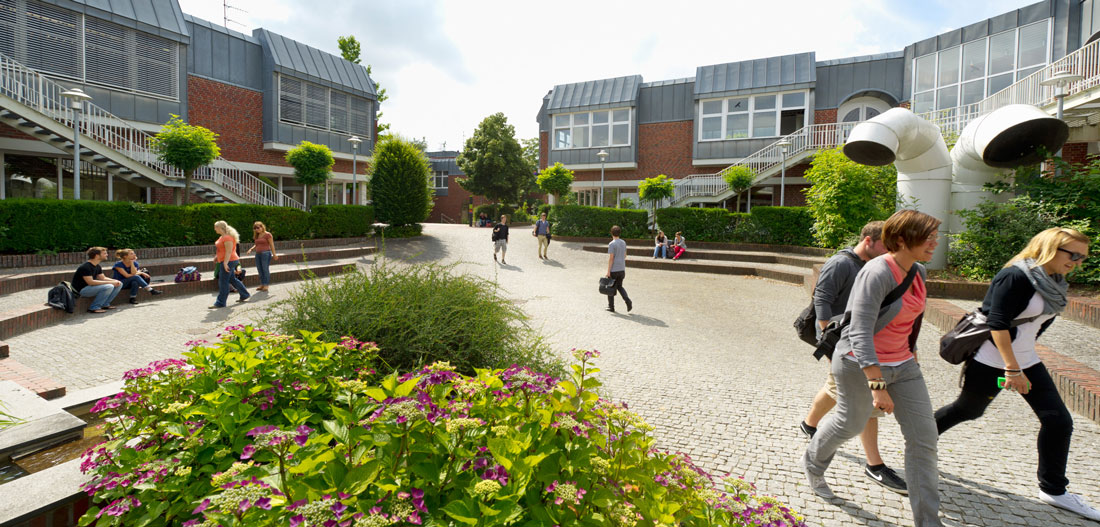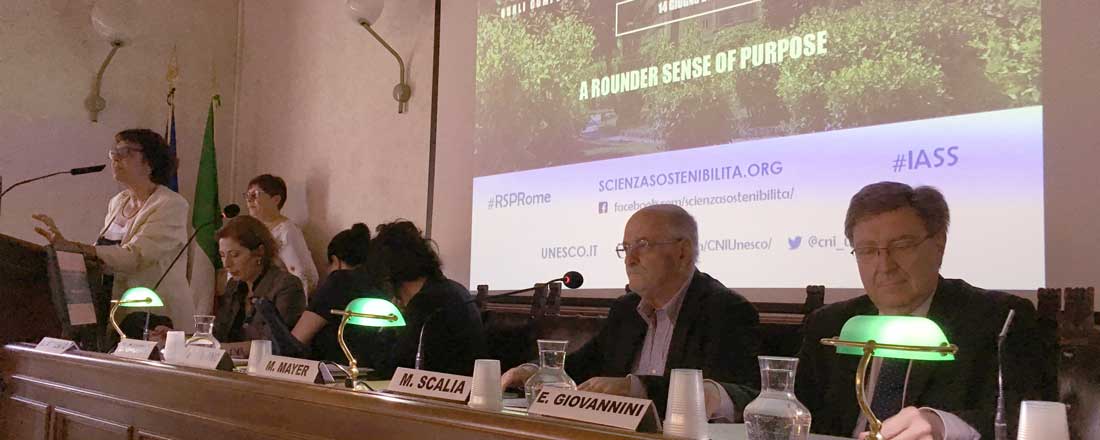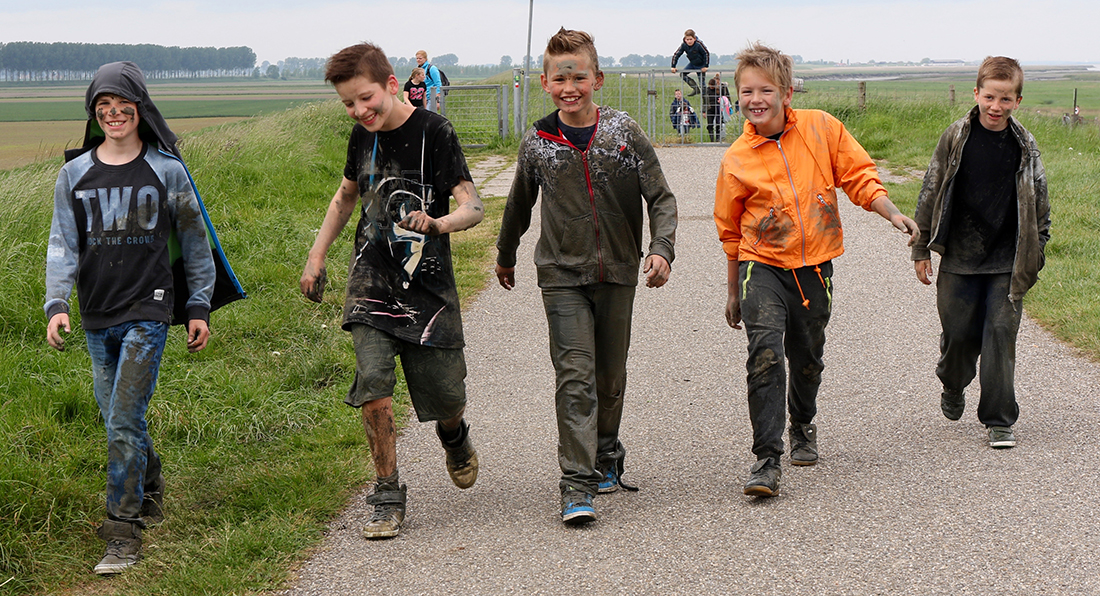RSP II Partner
The High School of Education of the Canton of Vaud (HEP Vaud) belongs to the network of Swiss HEPs. It is located in Lausanne in the canton of Vaud.
Born in 2001 in Lausanne, on the site of the old Normal School, by the merger of 11 training institutions, the HEP Vaud becomes a high school of tertiary level1. It develops a fabric of cooperation on the national and international level.
HEP Vaud provides basic training for future teachers and offers continuing education, certified or not, to active teachers, as well as to all of the school’s professionals. It is also active in the field of educational research and development and offers a set of educational resources to school professionals.
Since its creation in 1994 as a state-of-the art technological university with a highly innovative learning model, the Universitat Oberta de Catalunya (UOC, Open University of Catalonia) is one of the world’s premier online Higher Education universities, now engaging more than 50,000 students. The UOC’s core goal is to be the ‘university of the knowledge society’, promoting innovative education, personalised learning, technological leadership, R&D work on the information society and eLearning. The UOC’s research centre, Internet Interdisciplinary Institute (IN3), specialises in the study of the Internet and the effects of the interaction between digital technologies and human activity.
Our research group at IN3-UOC, the Urban Transformation and Global Change Laboratory (TURBA), focuses on unpacking new models of production, consumption and political organization in the Network Society, that go beyond the city in itself. Our aim is to investigate and provide a nuanced understanding of how the urban is and can be re-configured and transformed by new socio-technological configurations to confront the global change we are facing.
One of the TURBA research lines is the co-production of knowledge on sustainability-related issues that examines processes of collaborative creation of knowledge in digital as well as non-digital environments for a myriad of purposes related to urban transformation towards sustainability, and with a focus on social innovation. We analyse education practices at schools and universities, citizen science projects and other learning and teaching initiatives in informal contexts, as well as citizens’ participation in formal decision-making processes to provide critical insights into the political, ecological, social and cultural dimensions of learning and co-production.
Hungarian Research Teachers’ Association (HRTA) is an independent civil organisation. Our members are aspiring teachers who live their profession as a mission and are willing to improve the educational environment they are working in.
There are many other creative teachers or various teacher associations—but we are networking (let us teach humanities, arts or science) to support each other in our innovative ambitions. Being part of a civil organisation provides us good opportunities to realize and implement our initiatives so that they get taken further from the level of ideas at last thus making school life more inspiring and more useful.
Our target is that the work of our Association, which has high standards and effectiveness, would become a main factor to educational policy especially in the fields of talent development and creating educational methods and materials.With our experience and ideas we intend on our students staying open and curious in the World. We want them to become open-minded multi-lingual citizens in a way that they could find their place in different groups as well. They should have the claim to search for the cause-causal connections, but remain stable, harmonic people who beyond their probable successes, keep the importance of giving help in their surroundings.
Frederick University (FU) is one of the four recognised private Universities operating in the Republic of Cyprus and is the only University in Cyprus which has an expertise in Education for Environment and Sustainable Development and it offers Masters and PhD programs exclusively in ESD. Since 2009 the School of Education has offered an innovative postgraduate programme (MSc) in Education for the Environment and Sustainable Development. The programme places emphasis upon reorienting education towards sustainable development.
The programme receives support and cooperation from a number of governmental and non-governmental organisations, such as the Ministry of Education and Culture, the Environmental Education Centres Network, the Ministry of Agriculture Natural Resources and Environment, and several environmental NGOs. Furthermore, the undergraduate programmes of the Departments of Primary and Pre-primary education include a number of compulsory courses on education for the environment and sustainable development. Since 2015 school of Education offers a new distance international master course in ICT and ESD.
NCU is one of the leading research units of the FU, which has developed a wide range of activities in the areas of education for the environment and sustainable development, nature conservation and natural resources management. The School of Education works in close cooperation with the Nature Conservation Unit (NCU) of FU. During the past five years, the FU has secured and carried out more than 15 research projects on ESD that have been funded by the Research Promotion Foundation of Cyprus, the European Commission, the United Nations and the Government of Cyprus.
Through these projects, the FU has established close collaborations and concrete national regional and international networks on ESD with a wide range of partners (research institutions, universities, NGOs etc) from Cyprus and abroad. In 2018 FU awarded in Educational Leaders Awards as the University in Cyprus that has a long term and holistic Strategy on ESD.

The University of Vechta is a relatively new campus university located in Lower Saxony/Germany that offers ten academic programmes to approximately 5,000 students. Areas of research include: education and discipline-specific pedagogies; social sciences, social services (social work, gerontology, social services management), regional development/rural areas; landscape ecology; social, political, cultural and economic change, business ethics, and sustainable development. Its strategic plan identifies internationalisation, sustainability, gender equality and participatory research approaches as essential. The University of Vechta has established an internal steering group for integrating the concept of sustainable development in all areas and functions of the university. In 2017, the University adopted Sustainability Guidelines. In Summer Term 2018 and 2019, the University of Vechta implemented a series of staff traning workshops on Education for Sustainable Development.
The University of Vechta is dedicated to the development of innovative teaching and learning settings, in particular linked to competence-based higher education. For instance, the University offers service-learning, project-based and inquiry-based courses in which students can learn with and from actors from practice. In different study programmes, the university offers courses which deal with (education for) sustainable development. For instance, at Bachelor level students can study a major in “economics and ethics: social business”; and as part of the Master of Education students can study a course on Education for Sustainable Development. The University of Vechta is part of the Regional Centre of Expertise (RCE) for Education for Sustainable Development Oldenburger Münsterland. The University of Vechta is member of the German-speaking Network “Teacher Education for Sustainable Development”.

The Italian Association for Sustainability Science (IASS, Associazione Italiana per la Scienza della Sostenibilità) is a scientific association gathering scientists, educators, experts and practitioners, established in 2013. It promotes inter and transdisciplinary debate and collaboration among disciplines and actors in order to jointly find solutions that help us initiate, support and scientifically accompany the transformation to sustainable development.
IASS is connected with the International Society of Sustainability Science and the International Conferences on Sustainability Science (ICSS), the World Organization for Systems and Cybernetics, and other Networks on ESD and Sustainable Place Shaping.
IASS is actively involved in promoting development of ESD in Italy through several actions:
- Implementation of training and reflection processes with teachers and students aimed to investigate and reflect on the role of science for a sustainable future (e.g. at Expo Milano in 2015 in collaboration with the International School of Knowledge, Innovation, Policies and Territorial Practices for the United Nations Millennium Platform; at EARTH DAY and other local and regional initiatives)
- Participation to the Scientific Committee of the Italian UNESCO National Committee for ESD (CNESAgenda20230), contributing to the definition and promotion of its national initiatives
- Initiatives with schools, universities and NGOs aimed to promote the values and visions of a sustainable society in all educational processes (formal, non- formal, informal)
- Development and assessment of ESD competences for educators and teachers
- Organisation of workshop and conferences aimed to discuss models and approaches of knowledge co-creation and social learning for the implementation of Agenda 2030
Other fields in which IASS is engaged are: “Transforming Assessment & Evaluation” (Global SDGs Transformation Forum); designing and co-producing research and action together with representatives of the scientific community as well as of politics, industry and civil society; Valorisation of the Agro-cultural Heritage for Sustainability; Tobitate Young Ambassador Programme (capacity building programme for sustainable development financed by Japanese Ministry of Research and Education)

Duurzame PABO is the Dutch network of teacher training colleges and primary schools that are actively working on education for sustainable development (ESD) in (existing) education and the organizations. This network is established in 2005. Duurzame PABO is an independent NGO since 2008. Duurzame PABO participates actively in Leren voor Morgen, the cooperation that links (about) all Dutch ESD initiatives since 2017.
Duurzame PABO supports in several ways:
- Conducting network activities: organizing the annual network day (conference), giving lectures or workshops at conferences, providing websites and social media that focus on ESD knowledge transfer (www.duurzamepabo.nl, Twitter, Facebook and Linkedin).
- Publishing (e)books on ESD for students and teachers.
- Quality enhancement: Duurzame PABO supports teacher training institutes and schools with courses and training programs.